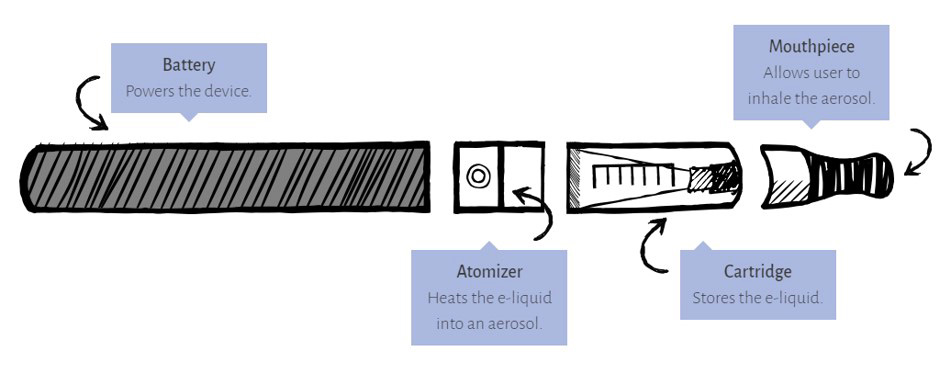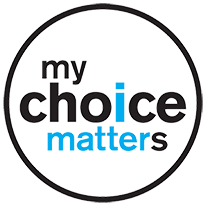VAPING TOOLKIT
Let's clear the air about vaping.
Learn what vaping is and important facts to help you know how to keep youth healthy.
Parents, caregivers, and youth-serving organizations play a vital role in delaying and preventing youth using e-cigarettes and vapes. The resources provided here offer education and ways to address the issue.
Altria, who owns 35% stake of JUUL is the parent company of Philip Morris (Marlboro brand of cigarettes). A memo from Philip Morris in 1981 stated, “Today’s teenager is tomorrow’s potential regular customer, and the overwhelming majority of smokers first begin to smoke while still in their teens.”
From the report “Young Smokers: Prevalence, Trends, Implications, and Related Demographic Trends,” March 31, 1981

What you need to know:
A. Vaping is the act of inhaling and exhaling the aerosol, often referred to as vapor, which is produced by an e-cigarette or similar device. The term is used because e-cigarettes do not produce tobacco smoke, but rather an aerosol, often mistaken for water vapor.
Vaping has grown in popularity with the rise of e-cigarettes, which were introduced to the mass market in the U.S. in 2007. Vaping devices include not just large devices that emit large clouds of aerosol, but also vape pens and more discreet devices including JUUL.
A. An e-cigarette or vape, also called a vaporizer, consists of a mouthpiece, a battery, a cartridge or pod for containing the e-liquid, and a heating component for the device that is powered by a battery. When the device is used, the battery heats up the heating component, which turns the contents of the e-liquid into an aerosol that is inhaled into the lungs and then exhaled.
- Presence of vaping equipment or related product packaging
- Unusual online purchases or packages
- Sweet smells – E-cigarettes don’t put off the same odor as a traditional cigarette. They may smell like a variety of flavors like bubble gum or fruit.
- Increased thirst or nosebleeds – Vaping removes hydration from the skin, especially around the mouth, nose, and throat. This can lead to increased thirst or nosebleeds.
- “Vaper’s Tongue” – When moisture in the mouth is compromised, you can lose flavor perception. If your child is taking an interest in spicier foods or is suddenly looking to add more spices or salt to his or her meals, it may be a sign they are vaping.
- Decreased caffeine use – Caffeine and vaping together can cause mood swings and/or increased anxiety. You may notice your child. You may notice your teen cutting back on their daily cup of coffee to offset these effects.
- Appearance and/or behavior changes – Nicotine and other substances that can be vaped, like THC (marijuana), can affect brain chemistry. This may lead to increased irritability or frustration. Nicotine withdrawal may also increase moodiness
Sources: National Institutes of Health; Centers for Disease Control and Prevention
Vaping and Youth
About These Resources
The topic of youth vaping is being reported on every day – and it’s no surprise why. 1 in 5 youth report current e-cigarette use. Between 2017 and 2018, there was a 50% increase in middle school aged youth. In that same time period, there was an 80% increase in high school-aged youth using e-cigarettes. The Barnstable County Department of Human Services has created this toolkit to provide a centralized resource for parents, and caregivers who want to become more educated and better equipped to take the action that is necessary for their child’s well-being. Download the Vaping Tookit flyer here to share with others.
Section 1. General Information on Vaping
Section 2. Information for Schools
2.1 E-cigarettes and Youth - What Educators and Coaches Need to Know
2.2 American Lung Association Tobacco-free School Policy
2.3 MAHB School Tobacco Policy Recommendations
2.4 MIAA Rules and Regulations
2.5 Tar Wars Prevention Program Grades 4-5
2.6 Catch My Breath Prevention Program Grades 5-12
2.7 Project CONNECT Prevention and Cessation Program
2.9 Scholastic Vaping Activity Sheet Grades 9-12
2.10 ASPIRE Adolescent Prevention and Cessation Program
2.11 Addressing Student Use of E-cigarettes
2.12 Scholastic Vaping Research Activity Grades 9-12
Section 3. Information for Parents
3.1 E-cigarettes and Youth - What Parents Need to Know
3.2 American Lung Association Parent Tips
3.3 Should I Talk To My Kids About Vaping
3.4 What You Need to Know and How to Talk with Your Kids About Vaping
3.5 How to Talk with Yout Teen About E-cigarettes
3.6 Tips for Talking With Your Kids About Vaping
Massachusetts Smokers' Helpline
1-800-QUIT-NOW
1-800-784-8669





